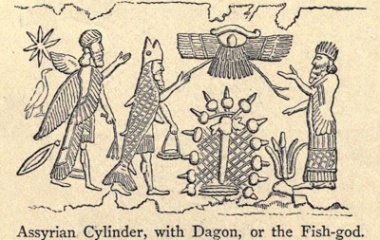textnote:
we are aware that often people read words at face-value, and many think a term as “the land” should be ofcourse “this earth, we live on” — but a term like this is decided from the context it is placed in; for example, “Egypt” is a real country during the exodus, but always represents Sekhet-Áaru when the term is used in prophecy. Related to this face-value is a second problem, namely the line-up of the words being used:
there is the “interlinear version” (which we use), and there is the other version (from which most modern versions are taken from, as KJV); but this version is often “switching words” in a sentence, and when object and subject have switched places, it often renders a different meaning, altogether. We consider this was done on purpose, in order to “keep the adamite soul thinking like Job”, using “sorcery by words”: because sorcery is typically about “creating another consciousness by hustling the order of words”; and we consider the added term as “reverse interlinear” to be no accident.
note: our interpretation of the line in purple; possible interesting terms for you in the notes in darkblue ; we apologize for each time the extensive notes, it makes things very unreadable, but Vital for context; we added other (legal) possible readings in red , glued to objectword,
note #:
the chapter isn’t about “russia” or any of the like – that is but qabbalistic nonsense. Instead, she addresses the Watercourse, the lampstand, the án-fishes and the future, and has a most important promise for you. We did not bend nor change any meaning, just looked at the context.
Ezekiel 29
son-of human place-you! faces-of·you on Pharaoh king-of Egypt and·prophesy-you! on·him and·on Egypt all-of·her speak-you! and·you-say thus he-says my-Lord ieue behold·me! on·you Pharaoh king-of Egypt the·monster the·great the·one-reclining in·midst-of waterways-of·him which he-says to·me י·i waterway-of·me and I-made·me
Son of man, set thy face against Pharaoh king of Egypt, and prophesy against him, and against all Egypt Thus saith the Lord GOD; Behold, I [am] against thee, Pharaoh king of Egypt, the great dragon that lieth in the midst of his rivers, which hath said, My river [is] mine own, and I have made [it] for myself.
- ‘monster’, as ‘than-‘, unclear root but part of levia-than, as the undirected-feminine;
- ‘midst of his rivers’ as the canals in Sekhet-Áaru, see diagram page;
- ‘waterway of me and I made me’, as split-off Watercourse, feeding the fields;
but factually “(my) split-off Watercourse I made by myself”,
and·I-give gaffs gaffs in·cheeks-of·you and·I-cause-to-cling fish-of waterways-of·you in·scales-of·you and·I-bring-up·you·thuk from·midst-of waterways-of·you and all-of fish-of waterways-of·you in·scales-of·you she-shall-cling
But I will put hooks in thy jaws, and I will cause the fish of thy rivers to stick unto thy scales, and I will bring thee up out of the midst of thy rivers, and all the fish of thy rivers shall stick unto thy scales
|
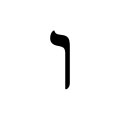
|
and·I-abandon·you the·wilderness·ward you and all-of fish-of waterways-of·you on surfaces-of the·field you-shall-fall not you-shall-be-gathered and·not you-shall-be-convened to·animal-of the·land and·to·flyer-of the·heavens I-give·you for·food
And I will leave thee [thrown] into the wilderness, thee and all the fish of thy rivers: thou shalt fall upon the open fields; thou shalt not be brought together, nor gathered: I have given thee for meat to the beasts of the field and to the fowls of the heaven.
- ‘wilderness’, in the colour of “dis-order, wrongly arranged”, so
“wilderness as a wrongly-arranged realm”,
the colour of the term is speech-related, implying that “a dimension is created by speech” [hence the constant theme in the spells about the mouth], but that they will be in a chaotic realm because the speech will be lacking. The next term refers to the same theme, “fall and not be gathered”, as broken-apart in many pieces; the next term even more clear, “(and those pieces shall) not be (re-) assembled”, - the animal and the flyer, as also in the Moab page,
and·they-know all-of ones-dwelling-of Egypt that I ieue because to-become-of·them staff-of reed to·house-of Israel
And all the inhabitants of Egypt shall know that I [am] the LORD, because they have been a staff of reed to the house of Israel
- ‘inhabitants of egypt’, as “the spirit-beings dwelling in Sekhet-Áaru”,
- ‘reed staff’, as staff-tá; where the reed-glyph Á- is connected illegally to the -T as the VaV, above;
- note how only ‘the house of israel’ is addressed (the 10 tribes / north kingdom), where the 10 tribes represent all the attributes of the torus-construct versus the lampstand;
in·to-grasp-of·them in·you in·the·palm-of·you in·the·palm you-are-being-bruised and·you-rend for·them every-of shoulder and·in·to-lean-of·them on·you you-are-being-broken and·you-make-stand to·them all-of waists
When they took hold of thee by thy hand, thou didst break, and rend all their shoulder: and when they leaned upon thee, thou brakest, and madest all their loins to be at a stand
- at first glance, the line makes sense as a description of untrustfulness, but every term in chapters as these are not mere symbolic descriptions but also real themes (fields, watercourse, wilderness, etc);
the line in green “to grasp of them, in the hand of you, in the hand, you are being bruised”, it is unlikely that ‘egypt breaks’, because this is about “the hand as executive area”,
“to grasp from them by the hand (matrix), in the hand you have broken in pieces (eden’s)”;
we agree this line is not perfect yet but compare the next lines in this stanza, - ‘to rent each shoulder’; in presented line is proposed that “because he broke, all of their shoulder got injured”, which is possible ofcourse but just doesn’t make sénse to the theme of previous verses; but if we had “hand, as executive area” before, then here it is the
“to cut-of the shoulders” (of lampstand);
compare glyph NEM- (‘slaughterhouse) as “to cut off the limbs” (see new Tut page); - next, ‘and when they leaned upon thee’, the lean-opon as ‘”rest upon, support, lean”, in previous context also here the verb isn’t passive (‘get broken’) but as active-verb:
“and the support of them you have broken”, as centre-pole of lampstand; - ‘the loins’, as place where the backbone needs support (by a belt), compare cherubs being bent, H5976 ‘to shake’, to root “to slip, to slide, to totter”, so the line is
“you make their loins to tilt”, of the cherubs;
as the cherubs now standing a few degrees off-axis, while all of the second half of Ezekiel is about ‘plumbline’ (also a clue is given that this off-axis starts ‘at height of the loins’, compare the pregnant Revelation woman); suggesting again that the “them” is “the house of israel represénts the lampstand” and is virtually identified with it,
therefore thus he-says my-Lord ieue Yahweh behold·me! bringing on·you sword and·I-cut-off from·you human and·beast
Therefore thus saith the Lord GOD; Behold, I will bring a sword upon thee, and cut off man and beast out of thee.
- human, word used ADM,
- the context makes sense to previous:
the mutilated lampstand was the cáuse for this human-animal product;
Therefore thus saith the Lord GOD; Behold, I will bring a sword upon thee, and cut off man and beast out of thee
…a revealing line… so deep is the mixture of this awful body, even with with animals, made “by thee”, that it will need a sword to severe the connections; the sharp ‘double-edged sword’ which severes ‘marrow’ as the innermost part of Matter (and of lies). (and they know: we encountered a double-edged sword in a spell)
and·she-becomes land-of Egypt to·desolation and·desertion and·they-know that I ieue because he-said Nile to·me and·I I-made-do
And the land of Egypt shall be desolate and waste; and they shall know that I [am] the LORD: because he hath said, The river [is] mine, and I have made [it].
|
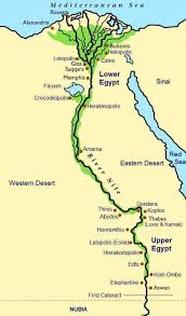 |
therefore behold·me! to·you וְ אֶ ל u·al and·to waterways-of·you and·I-give land-of Egypt to·desertions-of drought desolation from·Migdol Syene and·as-far-as boundary-of Cush not she-shall-pass in·her foot-of human and·foot-of beast not she-shall-pass in·her and·not she-shall-be-indwelt forty year
Behold, therefore I [am] against thee, and against thy rivers, and I will make the land of Egypt utterly waste [and] desolate, from the tower of Syene even unto the border of Ethiopia. No foot of man shall pass through it, nor foot of beast shall pass through it, neither shall it be inhabited forty years.
|
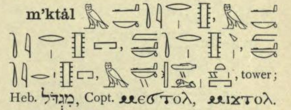 |
- the region will be restricted area for the adamite originals (word ADM used),
- Migdol, ‘of egyptian derivation’, to right; the term is difficult to read though,
“the fortress / (as) the mouth (eden’s) / (by) the staff-tá / (of) the k-axis / (as?) the willpower / the M-realm”,
not the eden-mouth itself can be the fortress (that is magically-dangerous); Budge per accident wrote an -L but the egyptians don’t use that vowel, the word reading MÃKTÁR,
most likely turning into the stepdown MÃKHA-T, “the pillar of the great balance”;
Ceveneh, ‘of egyptian derivation’, or ‘senu’ in green text — but the S-cluster is very extensive, and we cannot just go glue any possibility in the place of senu, but SHENU, “the word to encircle” can be an option, because no longer will the sh-pool in the lampstand be ‘encircled’, - the ‘ethiopia’, as “the torso ÁB-“, see Moab page; yet eventhough we have some indications now, “desolation of the fields, from the fortress (encircling the word) until the border of the torso” is unclear still; all we now is “that a section of the field will remain, as prison for them”, see below,
and·I-give land-of Egypt desolation in·midst-of lands ones-being-desolated and·cities-of·her in·midst-of cities ones-being-deserted they-shall-become desolation forty year and·I-scatter Egyptians in·the·nations and·I-toss·them in·the·lands
I will make the land of Egypt desolate in the midst of the countries [that are] desolate, and her cities among the cities [that are] laid waste shall be desolate forty years: and I will scatter the Egyptians among the nations, and will disperse them through the countries
- first line, “I will make the fields desolate in the midst of the (other starplane) lands (who are also) desolated”, these lands are not ‘earth’, neither ‘the land south’, so there are other lands – perhaps ‘universes’; but either way,
sekhet-áaru was the kingpin óf their other lands [universes];
bit of the same problem with “the (main) city (as Õn) between the other cities”, because these are themes we fail to imagine, ‘complete other type invisible cities’… - scatter egyptians; by context “the spirits, now residing in the fields”, of whom a large part will relocate to earth, soon, as “the nations (of earth)”; and (another part of them?) “in the starplane-lands (universes)”,
that thus he-says my-Lord ieue from·end-of forty year I-shall-convene Egyptians from the·peoples which they-are-scattered there·ward
Yet thus saith the Lord GOD; At the end of forty years will I gather the Egyptians from the people whither they were scattered
- here, after the word “yet”, the 1000 years are full; it is the same theme as “the dragon to let loose a while”; the term ‘gather’ does not include affection, but the colour is “grasp, collect” (of the same word); the ‘peoples’ have to be “other type spirits or beings” residing in other starplanes (universes), and probably we will be in Shock when we will see ‘just how many other types there are’…
and·I-reverse captivity-of Egypt and·I-restore·them land-of Pathros on land-of birth-of·them and·they-become there kingdom low from the·kingdoms she-shall-become low and·not she-shall-lift-herself further over the·nations and·I-decrease·them to·so-as-not to-hold-sway-of in·the·nations
And I will bring again the captivity of Egypt, and will cause them to return [into] the land of Pathros, into the land of their habitation; and they shall be there a base kingdom It shall be the basest of the kingdoms; neither shall it exalt itself any more above the nations: for I will diminish them, that they shall no more rule over the nations.
- ‘again the captivity’, after the serpent has been let loose again a while, but now a definite one; and not anymore will be a sekhet-area (perhaps also literally meant in “she shall not lift herself”, compared to the sekhet-áaru as construct hovering over the land, south),
|
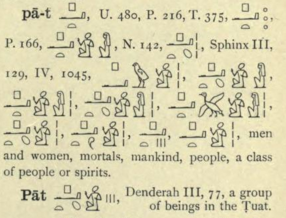 |
son-of human Nebuchadrezzar king-of Babylon he-made-serve army-of·him service great to Tyre every-of head being-made-bald and·every-of shoulder being-scraped and·hire not he-became to·him and·to·army-of·him from·Tyre on the·service which he-served on·her
Son of man, Nebuchadrezzar king of Babylon caused his army to serve a great service against Tyrus: every head [was] made bald, and every shoulder [was] peeled: yet had he no wages, nor his army, for Tyrus, for the service that he had served against it
Tyre represents the harp (sic), trafficing (djed-pillar), island (of horizon), city (On), clothing (body-garments), children (birth) etc; |
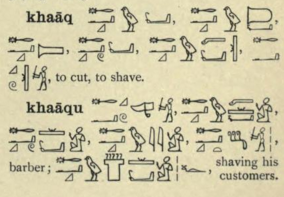
|
1) “every of head being made bald”, or “all of”,
- head: apparently from ‘to shake, shaken (of head, time, place, rank [dimension?] etc.)
head, top, summit, rank, total, beginning, first, etc (also glyph RASH,”force / new north / by mouth)”, - made bald; H7139, ‘make smooth, esp.bald’; bald meaning “no spiritual covering”
to right the glyph KHA-ÃQ (note the stargate+flames, and the vase-like sigil but horizontal now);
“to force / to become / the gate / (to shave) the word / (by) the q-axis / (as?) willpower /(for) the intestine”,
the intestine as solarplane, and again th q-axis; - serve; as “labour, work” (or serve something),
- army; rootword (from to twist, turn, turn round) [as dimension to fold?], same root:’to dance’ (shiva), ‘be twisted, be hurled on (against something; whirlwind)’, ‘to writhe, to twist oneself in pain, to tremble, to bring forth’;
- great; but rootword “to grow”
2) “every shoulder”, likely “both shoulders of lampstand”,
- peeled; word is “to smoothen, to polish”, by implication ‘to sharpen (a sword), ‘to pluck out the hair, make bald’ or ‘sharp’ in SEPT’-sense;
the “plucking out the beard” must be “the coverings within the lampstand” (since is below the mouth), as the lampstand-shoulders’ positions; - to hire; as ‘to hire or to bribe’, rest unclear – but sakar = SEKER glyph?
preliminary conclusion, every term used, nothing stretched, this line 18 as:
“(you) adamite soul, son of the original: / Thoth the guard of the (q-) axis / (as) the king / of Mixture, / he laboured / he to turn-around (inverse) / the work / to grow / as the place of Õn, / by (means of) all of the head (eden’s) / for to (shave) the word off the q-axis, / and both lampstand-shoulders / being plucked-out / for hire; / (yet) not / it became / for him / his turning-around (inversion) / as Õn / as / the job / which / he worked / (for) “;
| The line needs correcting still, but the core is there now; note how “the lampstand-shoulders for hire” only make Sense, when one knows about the existence of a glyph as T’ENEH’ (to right); the glyph as a stepdown of T’EH’UT, Thoth; this wing rather regularly appearing in spells; here it is immediately related to the lampstand-shoulders, per context implying they got Inversed, above the line (the meaning of ‘to hire’). Yes we saw it but no we didn’t realize it, neither…… This page must be read together with the (to be posted next) Zachariah pages, where the new lampstand (sic) is being described (attempt as pic to right); where the “upper part”, the mirrored arms upward, was until now this double T’ENEH’-wings. | 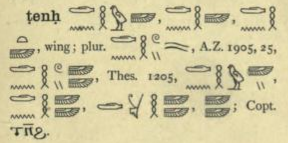 |
therefore thus he-says my-Lord ieue behold·me! giving to·Nebuchadrezzar king-of Babylon land-of Egypt and·he-carries-away throng-of·her and·he-loots loot-of·her and·he-plunders plunder-of·her and·she-becomes hire for·army-of·him
Therefore thus saith the Lord GOD; Behold, I will give the land of Egypt unto Nebuchadrezzar king of Babylon; and he shall take her multitude, and take her spoil, and take her prey; and it shall be the wages for his army.
“I will see to it (behold) / to set / to Thoth / the fields / and he shall take up (and away) / the multitude from her (of spirits), / and he shall strip-off / the spoil in her, / and he shall pull in pieces / the spoil in her / and this / (she) becomes the wage / for his inversion”;
(as payback, penalty; as pun on previous line), the above line is the stanza AA-BB-CC (pun lines) considering the spoil and pull in pieces;
- multitude; root ‘to growl, murmur, hum’ (“the spirits who murmur”) = the multitude ÃSH,
- army and wages; same word
The context is still allright — after describing his inversion, he is now ordered to un-do his looted aspects;
wage-of·him which he-served in·her I-give to·him land-of Egypt which they-did for·me averment-of my-Lord ieue
I have given him the land of Egypt [for] his labour wherewith he served against it, because they wrought for me, saith the Lord GOD
- so this is nót some “using the one badguy against another, and now praising the first thug type-story;”
“(as) the wages for him / who / laboured / in her / I set / to him / the Sekhet field / wherewith he worked against with (s), / these execute / the declaration of / the Lord “
the context still going allright; the term before (s) taken from kjv interpretation;
in·the·day the·he I-shall-make-sprout horn for·house-of Israel and·to·you I-shall-give opening-of mouth in·midst-of·them and·they-know that I ieue
In that day will I cause the horn of the house of Israel to bud forth, and I will give thee the opening of the mouth in the midst of them; and they shall know that I [am] the LORD
first note that this closing-line follows the Thoth part, using here THE theme of all the spells,
namely “the opening of the mouth” (eden’s), and note he is addressing you;
- it is not exact ‘in that day’, but more “in the same day I make to sprout the horn, IS the opening of the mouth”, because the horn is directly related to the mouth – through the Lyre,
- will cause; as ‘make to sprout [the branch],
- ‘horn’; qaran, several about “the face of Moses glowing” (and wrongly applied and drawn as Moses having horns, as by the occult Michelangelo); we have no other context about this horn but ‘to shine’, but we go compare the “unicorn” (deer-theme) as Joseph (in Deut.33) with the gazelle theme in spells (the gazelle GEH’ES as doubled horn);
- note how “the horn is the góal of the house of Israel” — which is Joseph;
and the “you” is “you, as reader, who belong to the house of Israel”; - ‘them’; can only be “the myriads of other-type-beings” if you think about it:
that was the whole goal of Eden: to have His beings speak the true creation in every universe….
#closing:
…we hope that we succeeded to show a different depth to you in this chapter;
because the theme never could be about some ‘literal Egypt’ or some fight about the Nile:
but instead, this chapter shows a deep Fractal, by using the names and themes
representing the latter.
finished 11/8, as first version, loNe

